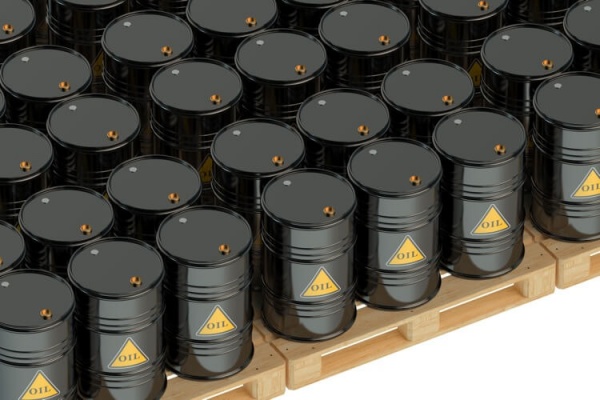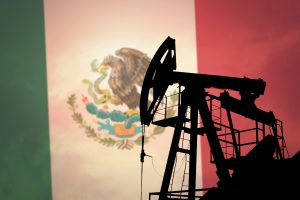China’s promised energy revolution
From: Financial Times / Nick Butler / 19 de noviembre
Can China transform its energy economy? For the last 30 years rapid economic growth – based on heavy industry, manufacturing and construction – has been sustained by hydrocarbons. Coal remains dominant; what has changed is the volumes involved. In 1990, China used some 446m tonnes of coal. This year the figure will be around 2.8bn tonnes. In parallel, oil demand has grown with the dramatic expansion of car numbers. Oil consumption was 2m barrels a day in 1980. Now it is almost 12m b/d, making China the largest oil importer. But growth has come at a cost. China, as last week’s announcement from the Global Carbon Project reminded us, is the largest single source of emissions and suffering badly from the low level pollution that covers many cities in smog. President Xi Jinping has promised dramatic change – an energy revolution “to make the skies blue again”.
The rhetoric is great but are the promises deliverable? A comprehensive study of the Chinese energy market published last week as part of the International Energy Agency’s new World Energy Outlook is a great place to start for anyone wanting to understand what is happening and what might happen next. The facts are remarkable: China consumes 25 per cent of energy used globally each day. Coal continues to dominate Chinese energy use – in industry, power generation and heating – providing almost two-thirds of total demand. The country produces and uses over 50 per cent of all the coal burnt globally. Power generation has grown dramatically to meet electricity demand that has quadrupled since 2000. Gas use is relatively small but growing – mostly relying, for now, on imported LNG. China is the leading producer of wind and solar power. Advances in technology and production efficiency have cut costs and made the country the dominant supplier of solar panels to the rest of the world. China is building dozens of new nuclear plants – more than a third of the global total. Its nuclear industry is developing its own reactor technology, aiming to create a world-class export industry. The country leads the global electric vehicle industry. Of the estimated 2m electric vehicles on the world’s roads by the end of this year, at least 40 per cent will be in China. Remarkable advances in energy efficiency have been made, and the amount of energy used for each unit of China’s gross domestic product has fallen 30 per cent since 2000 but emissions remain a challenge. After three years when reported emissions were flat, renewed industrial growth has pushed them up again.
Each of these facts reflects a dramatic change in the last 10 to 15 years. But they do not represent an end point. The party Congress in Beijing endorsed the latest plan – a sweeping statement of intent entitled “Energy Production and Consumption Revolution Strategy”. The plan describes a transformation of the whole energy sector over the next decade and a half. The share of non-fossil fuels will rise to 15 per cent by 2020, and to 20 per cent by 2030, meeting most if not all incremental demand. By 2030, 80 per cent of all remaining coal-fired power stations will have ultra low emissions as old capacity is retired. GDP energy intensity will fall by 15 per cent and the amount of carbon required will fall by 15 per cent. Further improvements will come over the following decade to 2030 The target is to ensure that emissions peak by 2030. The long-term goal for 2050 is to reduce the share of fossil fuels to less than half the total, to rebase the whole system on leading-edge energy technologies and equipment and make China an important player in global energy governance. History suggests it is unwise to underestimate China’s ability to deliver on its plans but in this case there are good reasons for doubt. Infrastructure and market structures are needed to support the changing energy mix.
As the IEA analysis makes clear, the absence of infrastructure and a supportive regulatory regime already limit the potential of natural gas. The same problems could constrain wind and solar. Electric vehicle numbers are growing but the odds are still that the bulk of the electricity they use will be produced from coal for a long time to come. An excellent post by Simon Goess for the Energy Collective website spells out the reality. In addition, industrial changes have to be managed. In coal and the major manufacturing sectors many workers and whole communities remain dependent on activity that is likely to be transformed or eliminated by technology. The Chinese coal industry, for instance, employs 4m. Trade dependence also poses risks. The target of 80 per cent net self-sufficiency is probably achievable with the combination of coal, new nuclear and renewables, including hydro. But the remaining 20 per cent involves the critical supply of oil where import dependence has doubled in the last five years. On the IEA’s estimate, China will need to invest $6.1tn – $250bn a year on energy supply between now and 2040, two-thirds of which will go into the power sector. Another $2.1tn ($90bn a year) will be needed to deliver the required gains in energy efficiency. China is a dominant force in the global energy market. Next week I will look at the international implications of what is happening. But energy also matters for the survival of the regime in Beijing. The political process has not been ended by Mr Xi’s triumphant re-election. A sustained improvement in living standards over the last three decades has helped to keep the Communist party in power. That would not have been possible if the energy system had not been adapted to meet growing demand in what is now a consumer society. The “iron rice bowl” now extends beyond employment and food to mobility and increasingly to the demand for a cleaner environment. As ever, energy and power are inseparable.







 “Experts point to Mexico as an example of how transformative gas can be in a matter of only a few years. As the American shale boom accelerated, producing more gas than its northern neighbor could consume, Mexico decided to import as much cheap gas as possible. Mexico replaced its dirtier burning coal and petroleum products, and now more than a quarter of the country’s electricity is powered by American gas.”
“Experts point to Mexico as an example of how transformative gas can be in a matter of only a few years. As the American shale boom accelerated, producing more gas than its northern neighbor could consume, Mexico decided to import as much cheap gas as possible. Mexico replaced its dirtier burning coal and petroleum products, and now more than a quarter of the country’s electricity is powered by American gas.” ““Marcos y Asociados elevates Sproule’s ability to provide strategic guidance for clients entering the Mexican oil and gas industry,” said President and CEO, Sproule, Cameron Six, “the in-depth geoscience, engineering, and commercial expertise of Sproule, combined with the local market knowledge of Marcos y Asociados, is a natural extension for the organization to help the industry navigate the new energy reform in Mexico.””
““Marcos y Asociados elevates Sproule’s ability to provide strategic guidance for clients entering the Mexican oil and gas industry,” said President and CEO, Sproule, Cameron Six, “the in-depth geoscience, engineering, and commercial expertise of Sproule, combined with the local market knowledge of Marcos y Asociados, is a natural extension for the organization to help the industry navigate the new energy reform in Mexico.”” ““These are completely solid contracts,” Juan Carlos Zepeda, head of Mexico’s National Hydrocarbons Commission, said in an interview, adding that there is “no risk” that Mexico’s next government could revoke them.”
““These are completely solid contracts,” Juan Carlos Zepeda, head of Mexico’s National Hydrocarbons Commission, said in an interview, adding that there is “no risk” that Mexico’s next government could revoke them.”